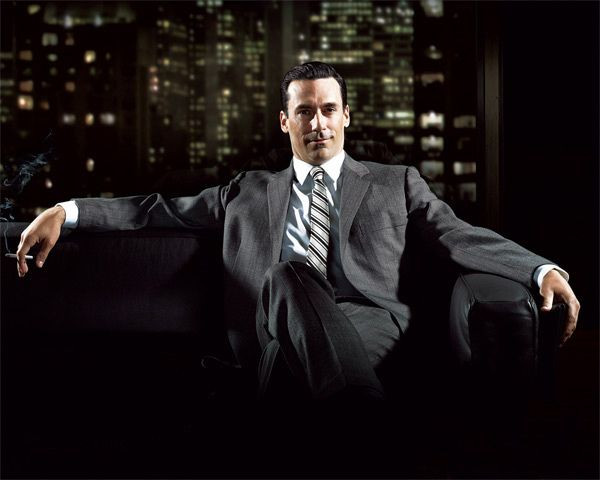Casting Calls: Tall, Masculine, 35-Year-Old Men Perceived As More Dominant Than Others

There is something inherently masculine about Don Draper, even though his character in Mad Men was often hollow, selfish, and morally disappointing. What made him appear so dominant? New research out of the University of St. Andrews in Scotland claims that tall, masculine men in their mid-30s are more likely to be perceived as dominant compared to other men without these features.
The researchers took photos of various men, then adjusted them digitally to make them appear older, taller, or more masculine. They asked participants to judge and compare the different faces. Twenty-five-year-old men who were made to look 8 cm taller, a decade older, or more masculine (by a stronger jawline, for example, or more prominent eyebrows) were seen as being more dominant than their original form.
Looks can portray information about a person’s biological and genetic health, and sometimes even their personality; but we can mostly agree, on most accounts, that “beauty is skin deep.” However, the researchers point out that physical features can often play a large role in social interactions, politics, and the business world. Indeed, research has shown that women are more likely to shun and be rude to unattractive men than they are to attractive men, especially after they “misbehave.”
“Understanding what influences dominance perceptions is important, since a dominant appearance in male faces is associated with a variety of social outcomes, ranging from high rank attainments of cadets in the military to high levels of sexual activity in teenage boys,” Carlota Batres, an author of the study, said in the press release. “Dominant people are also favored as leaders during times of intergroup conflict and are more successful leaders in the business world. Hence, understanding what it is that makes someone look dominant is important given its influence on a variety of social outcomes.”
Indeed, it makes sense that a taller, older man might be seen as both stronger and also more knowledgeable and experienced than a younger man — thus more capable to “handle affairs.”
“Such perceptions may also follow reality: taller men being more formidable opponents and strength increasing with age until a man gets to his mid-30s,” Professor David Perrett, head of the Perception Lab at the University of St. Andrews, said in the press release.
But perhaps labeling certain features as “dominant,” or associating height and age with dominance, is just as harmful to body image as associating skinny body types with female attractiveness. As Hollywood tends to favor the dominant, alpha male figure (Channing Tatum, John Hamm), society is simply reinforcing these often impossible ideals. Let’s take a step back and show some respect for the Dustin Hoffmans, Danielle Radcliffes, Jason Schwartzmans, and last but not least, Elijah Woods out there.
Source: Batres C, Re D, Perrett D. Influence of Perceived Height, Masculinity, and Age on Each Other and on Perceptions of Dominance in Male Faces. Perception. 2015.



























